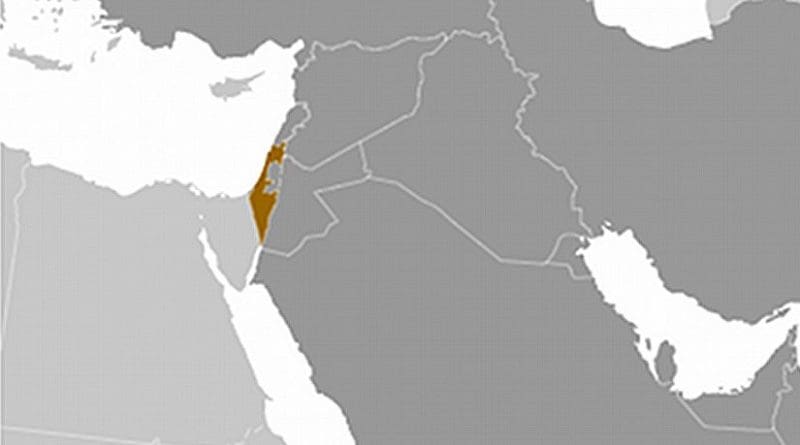Why Do Israeli Media Keep Predicting War With Iran? – OpEd
By Paul Woodward - War in Context
Tony Karon writes: If the White House believes November will arrive without any nasty surprises in the Iran nuclear standoff, it is not taking seriously the feverish chatter throughout Israel‘s media positing an imminent Israeli attack on the Islamic Republic. The front pages of the four main Israeli dailies last Friday reflected what appeared to be a concerted campaign to create the impression that Israel is preparing itself to start a hot war with Iran sometime over the next 12 weeks, notwithstanding objections by the U.S. and other Western powers — and, indeed, by much of Israel’s security establishment. “[Benjamin] Netanyahu and [Ehud] Barak determined to strike Iran in the fall,” proclaimed Yedioth Ahronoth. Haaretz offered: “Senior Israeli official — The Iranian sword at our throat is sharper than the run-up to the war in 1967.” Maariv informed us in its banner headline that 37% of the Israeli public believes that “If Iran gets the bomb, it might result in a second Holocaust.” And Yisrael Hayom said: “Iran significantly speeds up its progress toward the bomb.” The following day, the latter paper included a headline claiming that, according to Israeli TV, a “Decision by Netanyahu and Barak to strike Iran is almost final.”
Haaretz seemed to suggest that part of the renewed urgency was a claim that new intelligence allegedly received by the U.S. ostensibly showed Iran making accelerated progress toward a capability to build nuclear warheads, although there was no U.S. confirmation of those claims. And others in the Israeli media were skeptical. One of Israel’s most senior columnists, Maariv’s Ben Caspit, sought to calm the media frenzy. “You can all relax,” wrote Caspit. “In the last two weeks, nothing new has happened with regards to an attack on Iran. The Cabinet hasn’t convened, the Defense Minister hasn’t summoned the IDF general staff, and no new information has been received. Everything that is known today was also known two weeks and two months ago.
Caspit suggested that the new “bomb Iran” talk wasn’t based on any qualitative shift in the nature of Iran’s nuclear work. The U.S. intelligence assessment until now has been that despite steadily accumulating the means to build nuclear weapons, Iran has not thus far moved to enrich uranium to weapons grade or to begin the process of actually building a bomb. Nor has it taken a strategic decision to do so as yet. The problem is that the “red lines” adopted by Israel and the U.S. for triggering a military response are different: President Obama has vowed to take military action to stop Iran from acquiring a nuclear weapon, whereas Israel has insisted that Iran can’t be allowed to maintain the capability to build such weapons — a technological capacity it essentially already has. [Continue reading…]
It’s not really correct to say that Israel insists Iran can’t “maintain” the capability to build nuclear weapons. In one of his most recent statements, Netanyahu said: “I think it’s important to do everything in our power to prevent the Ayatollahs from possessing that capability.” Clearly, that wouldn’t be possible if in his view Iran already possessed this capability.
The problem is, there is no consensus on what nuclear capability means. As Mark Donig Jaclyn Tandler write:
In reality, possessing a nuclear capability could mean anything from having the infrastructure and know-how of a civilian nuclear program (like Japan) to possessing a dedicated nuclear weapons program just short of testing a nuclear weapon (like Pakistan before 1998). “Capability” is a spectrum, not a clear line that is either crossed or not.
Indeed, capability is a rhetorical red line imposed by those who want to sound emphatic but prefer not to be clear about what they mean.

